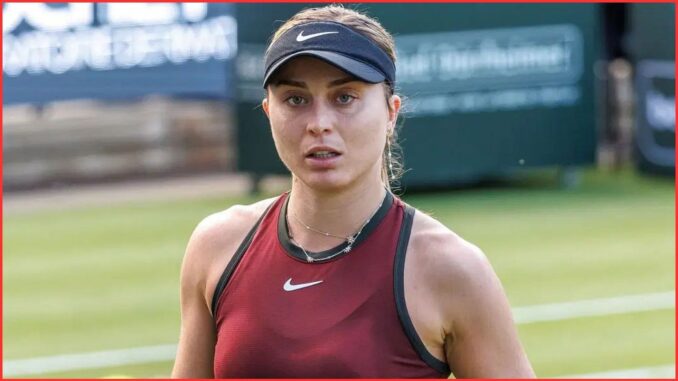
In a moment that captured the raw emotion of professional tennis, Paula Badosa’s 2025 Berlin Open campaign came to an abrupt and anguished end on June 20, as the Spanish star was forced to retire during her quarterfinal match against China’s Xinyu Wang. The world No. 10, visibly struggling with an injury, unleashed her frustration by smashing her racket multiple times on the grass court before tossing it aside, a dramatic display that has sparked both sympathy and backlash from fans. With Wimbledon just 10 days away, Badosa’s withdrawal raises concerns about her physical and mental state, while her candid admission, “I’m so tired of this,” underscores the toll of her ongoing injury battles.
Badosa entered the Berlin Open, her first grass-court tournament of the season, with cautious optimism after a challenging 2025. Her Australian Open semifinal run, where she fell to Aryna Sabalenka, marked a triumphant return to the WTA’s top 10, but recurring back issues have plagued her since a 2023 stress fracture in her L4 vertebra. Missing much of the clay season, including withdrawals from Madrid and Rome, she showed promise in Berlin, dispatching Germany’s Eva Lys 6-1, 6-3 and outlasting American Emma Navarro 7-6(2), 6-3. Against Wang, a qualifier who had stunned Coco Gauff in the prior round, Badosa faltered early, dropping the first set 6-1 in just 20 minutes. Struggling to move, she called for a medical timeout, but after playing three points in the second set, she retired, her head bowed in defeat.
The aftermath was visceral. After a respectful handshake with Wang and the umpire, Badosa’s emotions erupted. She slammed her racket four times against the Steffi Graf Stadium’s grass, a surface she has worked hard to master, before discarding it and storming off to a mix of supportive applause and stunned silence from the crowd. “I’m so tired of this,” she later posted on X, paired with a bandaged heart emoji, a raw expression of her exhaustion with persistent injuries. The outburst, captured by Tennis Channel, divided fans. Some expressed empathy, with one writing, “I know you must be. But you are such a fighter. Stay strong, warrior.” Others were critical, questioning her commitment: “Energy to smash a racket but can’t even move to return a serve?” Another fan remarked, “You can’t play every tournament with an injury… it was better for you to rest and prepare for Wimbledon.”
Badosa’s injury history adds context to her frustration. Since 2023, chronic back pain has forced multiple retirements, including mid-match exits in Mérida and Miami, and withdrawals from Indian Wells, Charleston, and the Italian Open. Her Berlin setback, initially attributed to her back but later linked to a right hip issue, jeopardizes her Wimbledon preparations. “During the years, I learned on grass that you have to go for it,” Badosa said earlier, reflecting on her adaptation to the surface, where she reached the fourth round at Wimbledon in 2021 and 2022. Yet, her 61.54% win percentage on grass, compared to Navarro’s 71.43%, highlights the physical demands of a surface ill-suited to her injury-prone body.
The backlash also touched on Badosa’s decision to play doubles in Berlin alongside Ons Jabeur, with critics arguing it strained her already fragile condition. Her scheduled semifinal doubles match against Sara Errani and Jasmine Paolini now seems doubtful, amplifying concerns about her fitness. Badosa’s resilience, however, is undeniable. Despite contemplating retirement in 2024 due to unrelenting pain, her love for tennis and support from peers like Sabalenka, who shared an emotional embrace after their Australian Open clash, keep her fighting. “She’s a very, very strong woman, strong personality,” Badosa said of Sabalenka, a sentiment that mirrors her own determination.
As Badosa eyes the Bad Homburg Open and Wimbledon, her Berlin exit is a stark reminder of the physical and emotional toll of elite competition. Supporters remain hopeful, with one fan predicting, “You will turn this pain into power.” Her journey, marked by setbacks and defiance, resonates as a testament to the human side of sport, where even the fiercest competitors grapple with vulnerability. Whether she can overcome this latest hurdle to shine at Wimbledon remains uncertain, but Badosa’s spirit suggests she’s far from finished.
a really unfortunate ending 💚
Badosa is forced to retire due to injury, sending Wang Xinyu through to the Berlin semifinals.#BTO pic.twitter.com/vrI1H9FeFs
— wta (@WTA) June 20, 2025
Leave a Reply